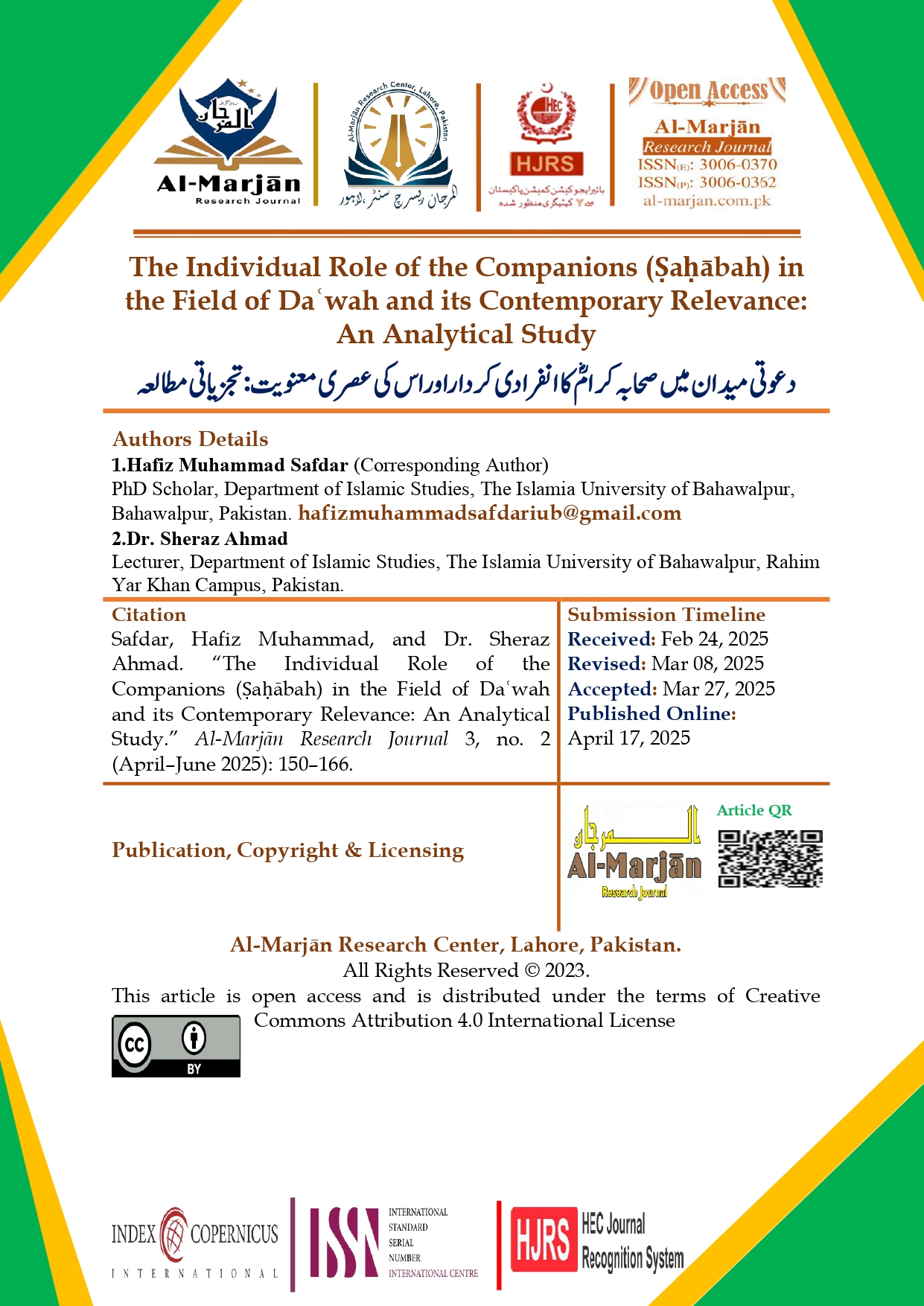The Individual Role of the Companions (Ṣaḥābah) in the Field of Daʿwah and its Contemporary Relevance: An Analytical Study
دعوتی میدان میں صحابہ کرامؓ کا انفرادی کرداراوراس کی عصری معنویت: تجزیاتی مطالعہ
DOI:
https://doi.org/10.1234/9zsyq763Keywords:
Ṣaḥābah, Daʿwah, Individual Role, Contemporary Relevance, Islamic OutreachAbstract
This research paper explores the individual contributions of the Companions of the Prophet Muhammad (peace be upon him) in the propagation of Islam (Daʿwah) and the significance of their efforts in the context of the modern era. The study investigates how the Prophet ﷺ selected and trained various Companions for specific regions, taking into account the cultural, social, linguistic, and political variations among the Arab tribes. These Companions not only conveyed the message of Islam through speech but also exemplified it through their character, conduct, and wisdom. From Musʿab ibn ʿUmayr in Yathrib (Madinah) to Ṭufayl ibn ʿAmr in the tribe of Daws, each individual played a transformative role in spreading Islamic values. The research uses both primary sources (Qur'an, Hadith, Sīrah literature) and secondary sources (academic journals, books, research papers) to examine how the Companions' models of Daʿwah can serve as a timeless guide for contemporary Islamic outreach efforts. Their sincerity, deep understanding of local cultures, and strategic communication offer an effective paradigm for modern duʿāt facing challenges in a globalized and pluralistic world. The study concludes that the revival of such personalized and character-based Daʿwah, modeled on the Ṣaḥābah, can enhance the effectiveness and authenticity of Islamic preaching today. It emphasizes that true Daʿwah is not merely in words, but in the embodiment of Islamic values.






































